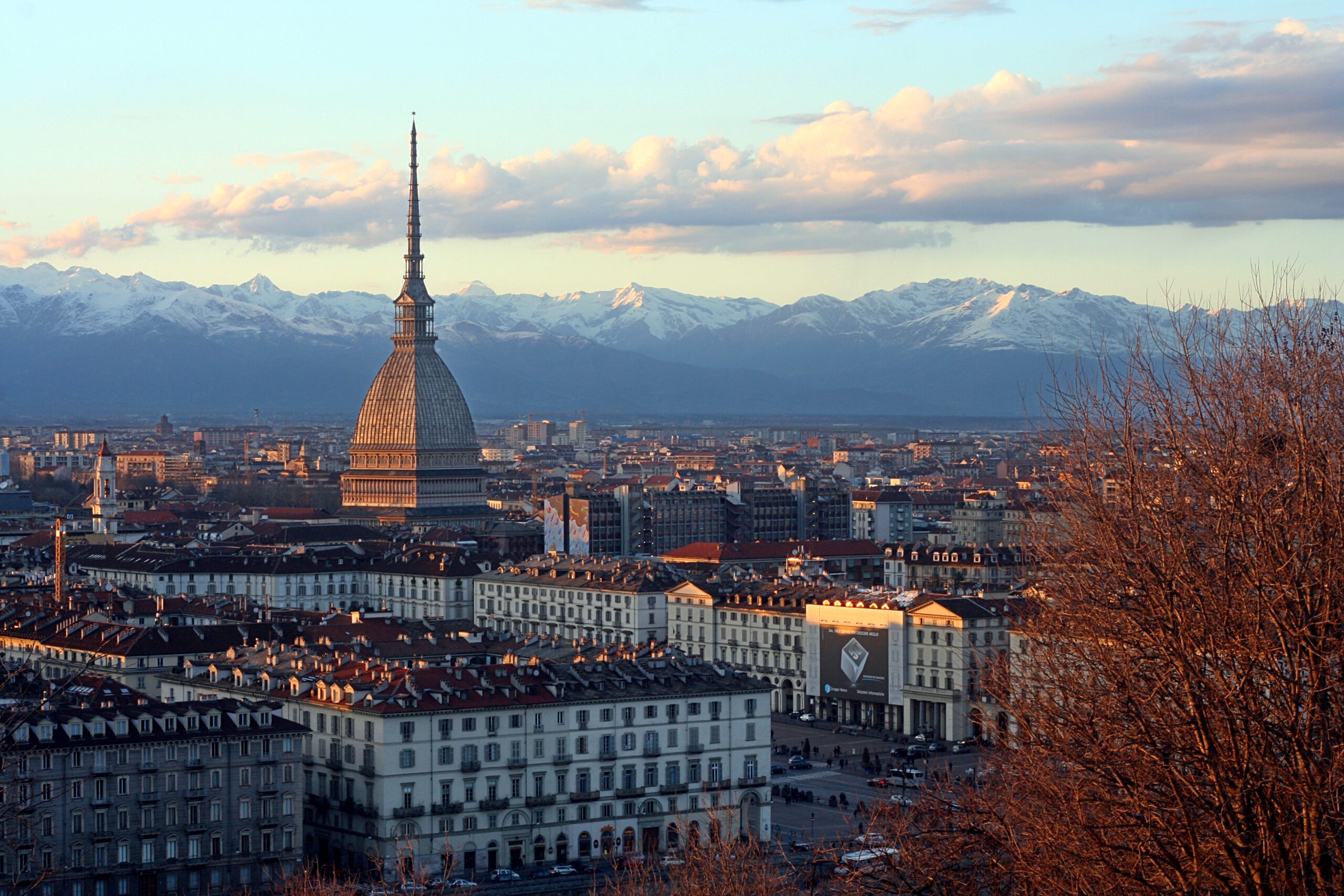Turin, a city renowned for its rich history and vibrant culture, is now paving the way for future generations through strategic educational district investments. These initiatives are not just transforming the urban landscape but are catalyzing profound economic and social development.
By focusing on creating a robust educational infrastructure, Turin is setting a new standard for sustainable urban growth. This exploration into the city’s commitment to enhancing its educational sectors reveals how targeted investments are effectively preparing Turin for global competitiveness and community enrichment.
Overview of Turin’s Educational Landscape

Turin, with its rich history and cultural heritage, is home to a notable educational landscape that has evolved significantly over the years. My engagement has deepened my appreciation for how the educational institutions in Turin contribute to its socio-economic development and cultural richness.
Key Institutions and Their Roles
I’ve had the privilege of interacting with various stakeholders in Turin’s educational sector. The city is anchored by prestigious institutions such as the University of Turin, one of Italy’s oldest universities, renowned for its research and academic prowess in humanities, sciences, and law.
Then there’s the Polytechnic University of Turin, which specialises in engineering and architecture, shaping future professionals who are integral to our business when considering new developments or restorations.
Secondary education also plays a crucial role in the city’s educational framework. Liceo Classico Cavour, for example, offers a curriculum steeped in classical studies and philosophy, preparing students for higher education and lifelong learning.
These institutions not only furnish the local workforce with skilled professionals but also attract international talents looking to study in a city steeped in history and innovation.
Historical Significance and Modern Evolutions
The educational roots of Turin are deeply intertwined with its history, dating back to the Renaissance period. The city has always been a centre of learning and scholarship, with its universities playing pivotal roles in political and social movements throughout Italian history.
My involvement in real estate has shown me how these historical institutions affect urban development and cultural life, preserving a legacy that attracts scholars and tourists alike.
In recent times, Turin’s educational institutions have adapted to the changing demands of the global economy. With a focus on sustainability and technology, universities like the Polytechnic have introduced courses that are responsive to the challenges of modern times, such as sustainable urban development and AI.
These courses not only align with the needs of businesses but also ensure that the city remains at the forefront of technological and environmental innovations.
Turin’s educational sector is a cornerstone of its identity and growth, reflecting a blend of historic grandeur and contemporary relevance. As we continue to develop properties across the city, the influence of these institutions is ever-present, informing our approaches and decisions, and highlighting the interconnectedness of education and real estate development.
Vision and Strategic Investments

I am deeply invested in the development of Turin’s educational landscape. My vision for the city includes not only enhancing its educational facilities but also ensuring these improvements have a profound impact on local and regional development.
Long-Term Goals for Turin’s Educational Sector
The long-term goals for Turin’s educational sector involve strengthening the integration of technology and sustainability within curricula across all levels of education. I aim to foster partnerships between educational institutions and local businesses to enhance practical learning opportunities and drive innovation.
This strategy includes promoting digital literacy and environmental awareness from an early age, ensuring that the future workforce is prepared for the challenges of tomorrow.
Impact on Local and Regional Development
The strategic development of educational institutions in Turin significantly influences local and regional economic growth. By equipping students with relevant skills and knowledge, we can attract high-value industries to the region, such as tech startups and green energy companies.
These sectors offer high-skilled jobs, helping to retain local talent and reduce brain drain. As someone at the helm of a property development company, I recognise the importance of such dynamics in boosting property values and enhancing the overall attractiveness of the area.
Sustainable Development Goals (SDGs) Alignment
Aligning Turin’s educational investments with Sustainable Development Goals (SDGs) is a priority for me. By focusing on quality education (SDG 4), decent work and economic growth (SDG 8), and sustainable cities and communities (SDG 11), we aim to create an ecosystem that supports sustainable development.
This involves constructing eco-friendly school buildings, using renewable energy sources, and incorporating sustainable practices into the school curricula.
Case Studies: Successful Educational Investments
One notable example of a successful educational investment in Turin is the revitalisation of an old campus into a modern tech hub. This project not only provided state-of-the-art facilities for students but also created a collaborative space for startups and established tech companies.
Another case is the introduction of a dual learning system in vocational schools, closely tied with local industries, which has significantly increased employment rates among graduates. These initiatives demonstrate the potential of strategic investments in transforming Turin’s educational landscape and, by extension, its economic and social fabric.
Through these efforts, I’m committed to playing a crucial role in shaping a thriving, sustainable future for Turin.
Policies, Plans, and Implementation

I closely monitor the evolving educational landscape in Turin, focusing particularly on the synergies between government policies, private sector involvement, and the infrastructural and technological advancements that support these initiatives.
Government and Private Sector Roles
The government of Turin, along with private stakeholders like Pearl Lemon Properties, plays a crucial role in shaping the educational sector. Government policies have been instrumental in providing the foundational support necessary for educational institutions to thrive.
These policies are often complemented by investments from the private sector, which inject innovation and additional resources into the system. For instance, I am involved in creating educational spaces that are not only conducive to learning but are also integrated with the latest technology.
Infrastructure and Technological Enhancements
Investing in infrastructure and technology is vital for the modernisation of education in Turin. Our projects include the development of digital classrooms and the integration of smart technologies into existing educational structures.
These enhancements are designed to provide students and teachers with the tools they need for a more interactive and engaging learning experience. We are also working on improving the physical infrastructures of schools, ensuring they are safe and accommodating for all students.
Legal Frameworks Guiding Investments
The legal frameworks in place are crucial for guiding educational investments in Turin. These regulations ensure that investments are made responsibly and that they align with the broader goals of the city and its educational needs.
As a property developer, understanding and adhering to these legal guidelines is essential. This ensures that our projects not only meet the highest standards but also contribute positively to the educational landscape.
Ongoing Projects and Future Proposals
Currently, we are involved in several projects aimed at enhancing educational facilities in Turin. These include the renovation of historic school buildings and the construction of new, eco-friendly campuses that align with global sustainability standards.
Looking forward, we plan to propose further integrations of green spaces within school environments and the expansion of digital learning tools across more schools. These projects are designed to support a balanced development approach that values both heritage and innovation.
By aligning our strategies with government policies and leveraging technological advancements, we aim to foster an educational environment in Turin that is rich, diverse, and forward-thinking. This will not only enhance learning outcomes for students but also contribute to the wider community and economic growth.
Good Practices in Educational Investments

I have observed several exemplary practices that significantly contribute to the educational landscape. These practices not only enhance learning outcomes but also foster community involvement and ensure sustainable growth.
Community Involvement and Stakeholder Engagement
Community involvement and stakeholder engagement are crucial in shaping educational policies and investments that truly meet the needs of the population. We engage with local communities through public consultations and involve them in the planning stages of new educational facilities.
This approach ensures that our projects receive wide support and are tailored to the specific needs of the community.
Innovative Learning Environments
Innovative learning environments are central to modern education. We focus on creating spaces that are adaptable and equipped with cutting-edge technology. These environments stimulate creative thinking and problem-solving abilities among students.
Features like modular spaces that can be easily reconfigured for different learning activities and tech-enabled classrooms that facilitate interactive learning are just a few examples of such innovations.
Examples of Effective Policy Implementation
Effective policy implementation can be seen in our recent initiative to integrate environmental sustainability into school curriculums. We collaborated with local authorities to support schools in installing solar panels and implementing recycling programmes.
Another successful policy was the introduction of a digital literacy programme across schools, which was developed in partnership with tech companies. This programme has not only enhanced students’ IT skills but also increased their employability in the digital economy.
Through these practices, my aim is to contribute to a well-rounded educational framework in Turin that supports both local community needs and broader economic objectives.
Economic and Social Impacts of Educational Investments

Educational investments significantly influence both the economic and social fabric of Turin. I’ve seen firsthand how these investments can transform communities.
Job Creation and Skill Development
Educational investments lead to job creation and skill development in several ways. By funding new educational facilities and programmes, we help generate employment opportunities not only for teaching staff but also for administrative and support roles.
Furthermore, these investments help in skill development by providing students with access to enhanced learning environments and resources, preparing them for the workforce. For instance, technical training programmes in partnership with local industries prepare students for high-demand jobs in sectors like technology and engineering.
Enhancing Educational Outcomes
Enhanced educational outcomes are a direct result of targeted investments in the sector. By improving facilities and updating curriculums with relevant content, students receive a higher quality of education.
In my experience, investments in digital infrastructure and modern teaching tools have led to improved student engagement and learning results, which prepare them better for higher education and future careers.
Contribution to the Local Economy
Investments in education also contribute significantly to the local economy. Educated individuals are likely to earn higher incomes, which boosts local spending and tax contributions. Additionally, by attracting more families to the area and increasing enrolment in local schools, we stimulate housing development and other related services, creating a positive cycle of economic activity.
Social Cohesion and Inclusion
Social cohesion and inclusion are enhanced through educational investments by creating more equitable learning opportunities. Initiatives such as scholarship programmes for underprivileged students and inclusive educational practices help integrate diverse community segments.
These efforts foster a sense of belonging and community among residents, which is crucial for social stability and cohesion.
Through strategic investments in education, I aim to foster a thriving, inclusive community in Turin. These investments not only stimulate economic growth but also build a cohesive society where everyone has the opportunity to succeed.
Challenges and Opportunities

In my experience, addressing the educational sector’s challenges and harnessing opportunities has been crucial for sustained growth. Let’s explore some of these challenges and opportunities.
Addressing the Skills Gap
One of the primary challenges in Turin’s educational sector is the skills gap between what students learn and the needs of the workforce. To address this, we have initiated partnerships between educational institutions and local businesses to develop curriculums that are directly aligned with industry requirements.
These partnerships help in updating the skill sets of graduates, making them ready for immediate employment, and reducing the time and resources companies spend on training new employees.
Navigating Financial Constraints
Financial constraints remain a significant hurdle in expanding educational facilities and resources. As a solution, I have explored various funding models, including public-private partnerships and investment from international educational funds.
These models help leverage private investment to supplement public funding, ensuring that educational projects do not stall and can even expand their reach and quality over time.
Technological Disruptions and Opportunities
Technological advancements present both disruptions and opportunities in the educational sector. We have embraced technology by integrating advanced IT solutions into schools, such as AI-driven learning platforms and virtual reality, which enhance interactive learning and help students gain practical skills in new technologies.
This approach not only prepares students for a tech-driven world but also positions Turin as a forward-thinking educational hub.
Global Trends Influencing Local Decisions
Global trends, such as the increasing importance of sustainable development and the global shift towards digital economies, heavily influence local educational policies and investments. In response, we have incorporated global best practices into local educational strategies, such as sustainability in school designs and curriculums that focus on digital literacy and global citizenship. This global-local approach ensures that students are prepared not only for local job markets but also for the global stage.
These strategic approaches help mitigate challenges and capitalise on opportunities within Turin’s educational sector, guiding us in our continuous efforts to enhance both economic viability and social value.
The Future of Educational Districts in Turin

I constantly explore how the evolving landscape of educational districts in Turin can be optimised to benefit both learners and the broader community. The future of these districts is shaped by thoughtful planning and strategic partnerships, leading to a promising horizon.
Projections and Potential Scenarios
Looking ahead, the educational districts in Turin are poised for transformation. I envision a scenario where these areas become hubs of innovation and learning, closely integrated with digital technologies and green spaces.
The rise in e-learning platforms could lead to a blend of physical and virtual classrooms, reducing the traditional space constraints and allowing for more flexible learning environments. Additionally, the push towards more sustainable urban development could see educational districts at the forefront, with schools powered by renewable energy and featuring environmentally friendly design.
Strategic Priorities for the Next Decade
Over the next decade, strategic priorities will focus on enhancing connectivity between education and the labour market. Emphasising STEM education will be crucial, along with fostering soft skills like problem-solving and teamwork.
I aim to support this by developing properties that not only serve as educational facilities but also as community centres where students can engage in practical, real-world projects.
Role of International Partnerships and Investments
International partnerships and investments will play a vital role in realising the potential of Turin’s educational districts. Collaborating with global educational institutions and tech companies can bring in new teaching methodologies, cutting-edge technologies, and substantial funding.
These partnerships also offer students opportunities for international exposure and learning, preparing them for a globalised job market. My focus is to facilitate these collaborations, ensuring that Turin remains competitive and innovative in its educational offerings.
These strategic elements will guide the evolution of educational districts in Turin, making them more than just places of learning but also centres of community life and innovation. As we move forward, these changes will undoubtedly contribute to the city’s social and economic growth, reinforcing the importance of education in urban development.
Conclusion: Building a Resilient Educational Ecosystem in Turin
As we move forward, it is clear that the educational sector in Turin is poised for significant transformation. The insights gleaned from examining the challenges and opportunities provide a roadmap for future developments.
Summary of Key Insights
Throughout our discussions, several key insights have emerged that are crucial for the development of a resilient educational ecosystem in Turin. Firstly, the collaboration between educational institutions and industry is vital.
It ensures that the curriculum remains relevant and that students are equipped with skills that meet current job market demands. I have seen the positive impacts of such collaborations, which help in bridging the skills gap and enhancing student employability.
Secondly, community involvement is indispensable. Engaging local stakeholders not only in decision-making but also in the implementation phases of educational projects ensures that the initiatives are well-received and have a lasting impact. This approach fosters a strong sense of community and ensures that educational developments benefit all residents.
Furthermore, the integration of technology in education has been a game-changer. Embracing technological disruptions provides opportunities for creating more engaging and effective learning environments and prepares students for a digital future.
The potential for tech-driven learning environments to transform education is immense and is something I am particularly excited about.
Lastly, the role of international partnerships and investments cannot be overstated. These relationships bring additional resources and expertise to Turin’s educational landscape, enriching the learning experience for students and positioning Turin as a global educational hub.
In conclusion, the future of Turin’s educational ecosystem looks bright. By continuing to focus on these strategic areas, we can ensure that the education sector not only survives but thrives, making Turin a model city for educational excellence and innovation.
I am committed to supporting this vision and are excited about the opportunities this will bring to the city and its residents.
Take True Decision
My team at Pearl Lemon Properties and I, look to the future and the goals we have set for Turin’s educational ecosystem, the involvement and commitment of all stakeholders are more crucial than ever. It is imperative that government bodies, educational institutions, the private sector, and the community at large come together to drive these initiatives forward.
I urge local government officials to continue and enhance their support through favourable policies and funding that facilitate educational growth. It is also essential for educational institutions to embrace innovation, adapt curricula to the evolving needs of the global market, and ensure that their offerings are accessible to all segments of the society.
For fellow businesses and private sector entities, there is a significant opportunity to invest in the future workforce by partnering with educational programs and supporting infrastructural developments. For more details or any other information about properties contact me at Pearl Lemon Properties.
I am here to give you a better solution. Let’s come and start together.


